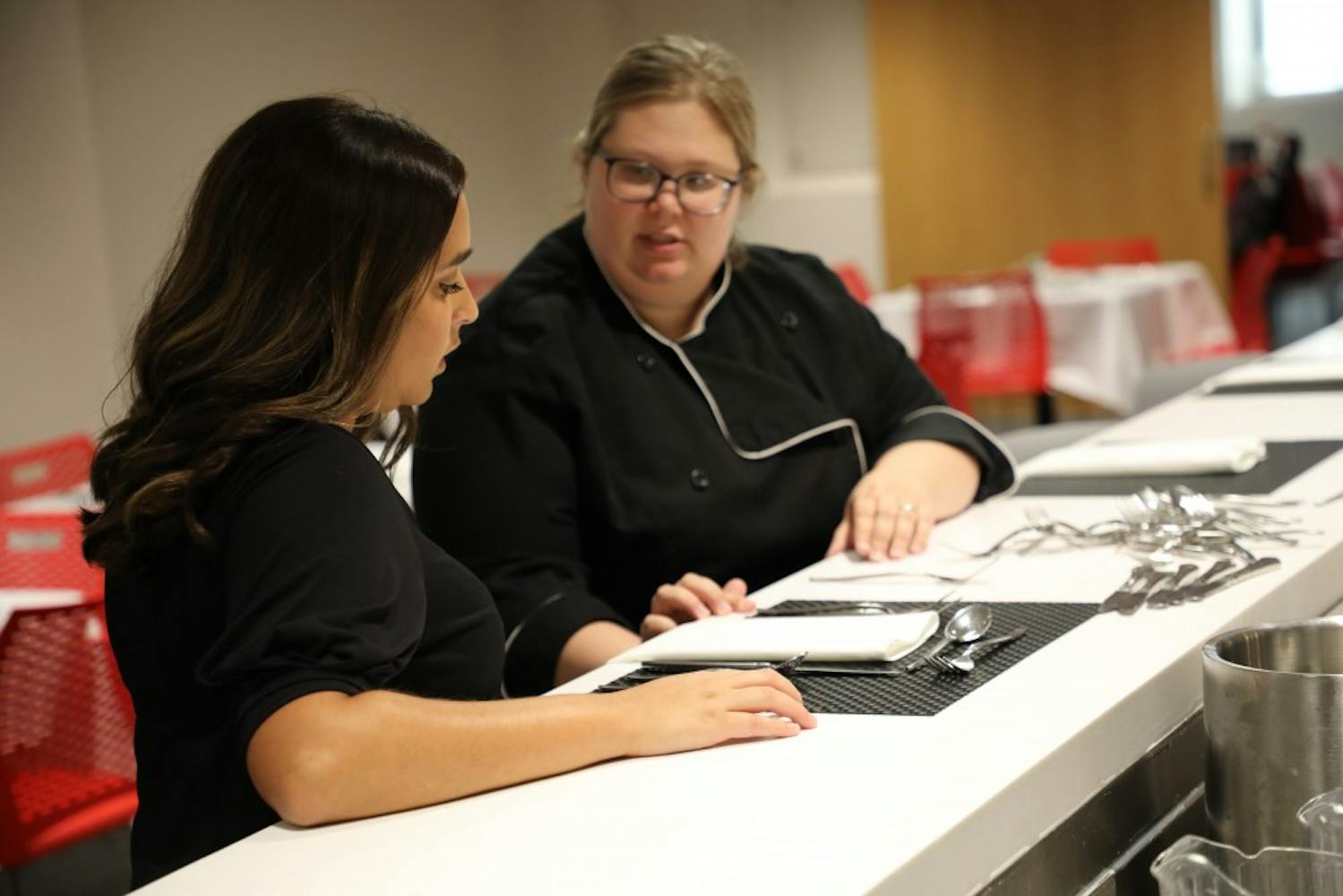Over the course of the academic year, Ball State’s student-run restaurant Allegre will help provide approximately 850 free meals to community members with the help of the Efroymson Family Fund Grant Award.
“The goal is to be able to start dealing with issues related to food insecurity for residents in Muncie, but also students at Ball State,” said Sotiris Hji-Avgoustis, department chair and professor in the Department of Management. “Beginning this semester, we are able to invite groups of community members to come and dine along with our paying customers.”
For Christiana Mann, assistant lecturer of hospitality and food management, the issue of food insecurity is “very personal” because many college students are food insecure.
“[Students] don’t have access to adequate nutritious food all of the time which inhibits a healthy lifestyle,” Mann said. “That’s the definition of being food insecure — not having enough and having an impact on your healthy lifestyle.”
According to Wisconsin Hope Lab’s 2018 survey titled “Still Hungry and Homeless in College,” 36 percent of 43,000 university students at 66 universities were food insecure in the 30 days preceding the survey.
Following an externship she did with the Muncie Soup Kitchen, Mann decided to incorporate service as part of her class curriculum and also focus on minimizing food waste in Allegre’s kitchen.
During the restaurant’s meal planning, the staff takes special precautions to make sure they don’t waste materials, products and produce they have, she said. If they do have extras, they make sure it is handled safely and securely to be donated to either an individual or an organization who can “reconstitute it into something else.”
People identified by Allegre’s free-meal program will be given vouchers with specific dates and times to come to the restaurant in order to avoid conflicts with regular customer bookings, Mann said.
“It’s very important to us that they have an experience just like anyone else coming into the restaurant would have,” she said. “We’re trying hard to make sure that folks are not singled out, that they don’t have a different experience [and] they are not treated any differently than a regular customer.”
Hji-Avgoustis added that the program also helps start a conversation with the community about other resources that are available to them.
“[These guests] are able to walk away with some information about preparing food on a budget [and] preparing nutritious food,” Hji-Avgoustis said. “It’s an opportunity for us to make them feel like part of the community, but at the same time start giving them a little more information and resources to help them find better ways to deal with any issues related to food insecurity.”
Since the beginning of the semester, Mann said she and her team of students have reached out to 20 community organizations including AmeriCorps, Second Harvest Food Bank, Muncie Mission, Soup Kitchen of Muncie, Motivate Our Minds, Inside Out Muncie, Cardinal Kitchen, the Boys & Girls Club and Cardinal Zumba for names and suggestions about who to invite with a voucher.
Dorica Watson, community engagement manager at Second Harvest Food Bank, said food insecurity is “a huge barrier” for families in the eight counties it serves.
“The beautiful thing about this partnership is that a number of families who are food insecure may not have the opportunity to attend a restaurant like Allegre and to have some of the meals that were provided in the table service that was offered,” Watson said. “Having that opportunity, our families who have gone already have just been blown away — so excited to be able to have a nice meal and to be appreciated while they were attending.”
She said Second Harvest Food Bank alone has been provided with vouchers for around 145 meals at Allegre.
“We are so appreciative of the opportunity,” Watson said. “A lot of our families may not have had an opportunity to have a fine dining experience and thanks to Allegre, not only was that made possible, but our families have that memory, that story, and again it increases … the possibility of doing something like that in their own homes.”
Contact Rohith Rao with comments at rprao@bsu.edu or on Twitter @RaoReports.









